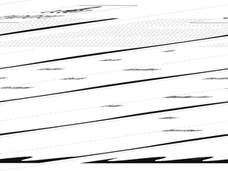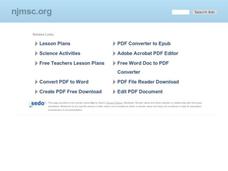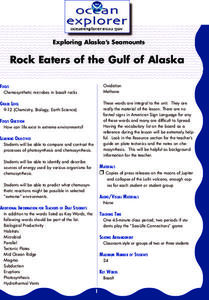Curated OER
Where's My Bot?
Young scholars estimate geographic position based on speed and air travel. In GPS lesson students use GPS to estimate the set and drift of currents.
Curated OER
A Natural Connection to the Azores
Students use primary sources to examine whaling voyages, biology, and geography. In this geography lesson, students analyze ship logs and plot locations of animals and determine routes using latitude and longitude.
Curated OER
Is It Getting Hot In Here?
Students describe several factors and ways climate change could effect communities. In this climate change lesson plan students research climate change and complete a worksheet.
Curated OER
Alien Invasion
Students research how alien species can change an ecosystem. In this coral reef lesson plan, students describe invasive species and site evidence how these species came to be invasive and what control measures are possible.
Curated OER
Inside-out Adaptations
Students describe sea stars adaptations and explain how these enable them to survive in different environments. In this animal adaptation lesson students watch a video, get into groups and create a list of characteristics of sea...
Curated OER
How to Catch a Fish
Students conduct an experiment to demonstrate the effects of different fishing methods. In this commercial fishing lesson students create posters and public announcements to share their information.
Curated OER
What is a Karst?
Students examine the process that creates limestone. In this limestone lesson students complete a worksheet and participate in a lab activity.
Curated OER
$$$eaweed
Pupils compare and evaluate the world's different seaweeds. In this investigative lesson students study seaweed and the harvesting of it. They then interpret the data collected and graph the seaweed production.
Curated OER
Floods
Learners investigate how hurricanes impact a stream flow. For this floods lesson students predict the impact of storms on animals and interpret data.
Curated OER
Climate and Change: Fitting the Facts Together and Acting on Them
Young scholars examine climate change. In this current events lesson, students read the provided articles "Key Facts + Key Conclusions=0?" "Oil Companies Fund Climate Change Deniers," and "Acting on Climate Change Facts." Young scholars...
Curated OER
Primary Producers
Students examine the role of carbon in the oceans and how phytoplankton determine the levels present. In groups, they practice measuring primary productivity using two methods. They use the internet to research the role of phytoplankton...
Curated OER
Coastal Biodiversity of South Africa
Students investigate the biodiversity found along the coast of South Africa. They conduct research using a variety of resources. They use the information in order to write lab reports with the data. The lesson can be adapted to other...
Curated OER
Water Quality Monitoring
Students comprehend the four parameters of water quality. They perform tests for salinity, dissolved oxygen, pH and clarity or turbidity. Students comprehend why scientists and environmental managers monitor water uality and aquatic...
Curated OER
The Fossil Record
High schoolers research about the animals found in Burgess Shale. In this earth science lesson, students evaluate the significance of fossils in human history. They create models of their chosen animal.
Curated OER
Venom!
Students examine the nature of venom. They conduct an experiment to demonstrate how proteins such as venoms can be denatured using raw eggs, beakers, heated water, and compresses.
Curated OER
Going for the Green
Students use satellite imagery to obtain information on chlorophyll concentration at selected locations in the Earth's oceans.Students explain the relationship between chlorophyll concentration and primary production.Studen
Curated OER
Who's Your Neighbor?
Students recognize and identify some of the fauna groups found in deep-sea coral reef communities. They describe common feeding strategies used by benthic animals in deep-sea coral reef communities.Students be able
Curated OER
Something Fishy
Students identify and discuss the adaptive characteristics and behaviors of fish. They view slides of fish, and design and create a model of a fish of the future, listing the ways their fish adapt to survive.
Curated OER
Where's the Beach?
Students use beach profile data to analyze how erosion and sediment transport changed seashore slopes. In this geology activity, students plot the data provided and analyze erosion patterns. They also assess coastal erosion management...
Curated OER
Coral Reefs Endangered
Students research where in the world coral reefs are located. In this ecology lesson, students create food chains and food web. They simulate growing coral reefs to understand their characteristics better.
Curated OER
Rock Eaters of the Gulf of Alaska
Learners compare and contrast the processes of photosynthesis and chemosynthesis. They identify and describe sources of energy used by various organisms for chemosynthesis.
Curated OER
Salmon Smolt: Stella PC and Mac
Students investigate the Stella Smolts Migration Model and its use in previous simulation models to help managers deal with the many factors contributing smolts decline. They participate in an interactive exercise in the role of fishery...

























